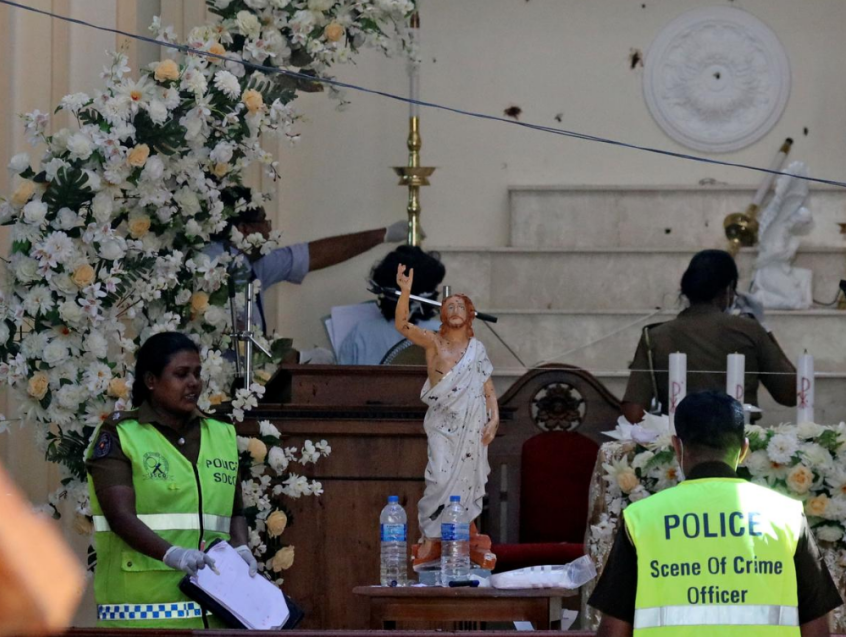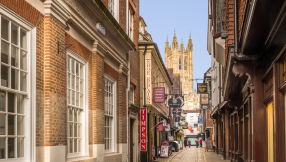
Sri Lanka faces a curfew ahead of a national day of mourning scheduled for 23 April, marking the tragedy of Easter Sunday which saw a series of explosions targeting churches and hotels in the majority-Catholic cities and towns of Colombo, Negombo and Batticaloa.
The attacks were aimed to strike a devastating blow to the country's million-strong Christian community as they gathered to worship.
Emerging reports indicate that a little-known Islamist local group called National Towheed Jamath (NTJ) carried out the Sri Lanka attacks, and Cabinet spokesman Rajitha Senaratne told the BBC that the authorities believe that the Islamist group had international help.
Most of the extremist groups targeting religious minorities have historically been Buddhist rather than Islamist, and it is too early to speculate about the group and any international links they may have while investigations are ongoing. It is, however, possible to comment on rise of religious intolerance in the country and culture of impunity that enables violent attacks such as this.
Christians are one of Sri Lanka's smallest religious minorities, according to the Centre for Policy Alternatives, which reported that the majority of Sri Lanka's population as measured in the 2011 census are Buddhists (70.2%), followed by Hindus (12.6%), Muslims (9.7%) and Christians at 7.2%.
In theory, Sri Lanka has an extensive national and international body of laws to guide the relevant judicial institutions to protect and promote freedom of religion or belief, including its accession to the International Covenant on Civil and Political Rights (ICCPR. The right to freedom of thought, conscience and religion is even enshrined in Article 10 and 14 (1) (e) of the constitution of the Republic of Sri Lanka.
However, the constitution also has a contradiction. Article 9 states that Buddhism should be afforded "the foremost place and accordingly it shall be the duty of the State to protect and foster the Buddha Sasana, while assuring to all religions the rights granted by Articles 10 and 14(1)(e)".
The situation on the ground, as evidenced by the country's human rights record, is worrying. Since the end of the three decades of civil war in 2009, civil society both inside and outside of Sri Lanka has recorded an increasing incidence of human rights violations, including of the right to freedom of religion or belief.
Attacks on members of religious minority groups in Sri Lanka, including Hindus, Muslims and Christians are not new. Religious intolerance has been on the rise in the country since 2000 and especially since the end of the civil war in 2009. Acts of violence motivated by religious hatred persist in an environment of impunity as the authorities are often reluctant to curb Buddhist nationalists and statistics on religious discrimination and harassment are often denied or ignored.
When prominent human rights lawyer, Lakshan Dias, quoted statistics from The National Christian Evangelical Alliance of Sri Lanka (NCEASL) indicating that Christians were subject to 195 incidents of discrimination, intimidation and violence between 2015 and June 2017, during a television interview he was threatened with disbarment unless he retracted his comment and apologised within 24 hours.
The situation also drew the attention of the UN Human Rights Council, which in 2014 adopted a resolution on reconciliation, accountability and human rights in Sri Lanka, noting its alarm "at the significant surge in attacks against members of religious minority groups in Sri Lanka, including Hindus, Muslims and Christians."
The government of Sri Lanka must investigate and prosecute those responsible for the Easter Sunday bombings and take steps to ensure that the right to freedom of religion or belief is upheld and promoted for all Sri Lankans, ending the culture of impunity which fuels this violence.
Steven Selvaraj is South Asia Team Leader at Christian Solidarity Worldwide













